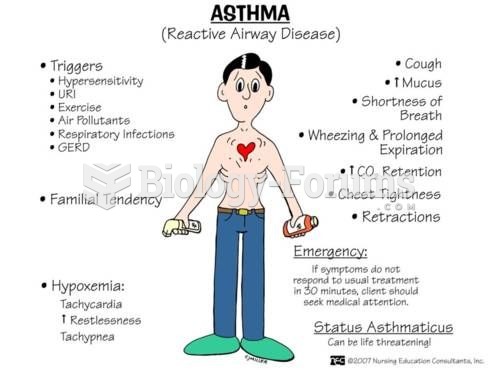Answer to Question 1
1, 2, 5
Rationale 1: Three drugs in the intranasal corticosteroidclass are available OTC: fluticasone, budesonide, and triamcinolone.
Rationale 2: Three drugs in the intranasal corticosteroidclass are available OTC: fluticasone, budesonide, and triamcinolone.
Rationale 3: Diphenhydramine (Benadryl) is an antihistamine.
Rationale 4: Oxymetazoline (Afrin) is a decongestant.
Rationale 5: Three drugs in the intranasal corticosteroidclass are available OTC: fluticasone, budesonide, and triamcinolone.
Global Rationale: Intranasal corticosteroids, when used consistently, decrease secretion of inflammatory mediators, reduce tissue edema, and cause mild vasoconstriction. There are three drugs in the intranasal corticosteroidclass: fluticasone, budesonide, and triamcinolone.
Answer to Question 2
1, 2
Rationale 1: The medication will decrease secretion of inflammatory mediators, reduce tissue edema, and cause mild vasoconstriction.
Rationale 2: The intranasal corticosteroids require 23 weeks of therapy before optimal benefits are attained.
Rationale 3: The client should not be instructed to stop all other medications.
Rationale 4: Clients report adverse effects of a burning sensation in the nose immediately after spraying and drying of the nasal mucosa.
Rationale 5:The client should be instructed to follow up with the prescriber within 23 weeks as the benefit of the medication should be achieved.
Global Rationale: Intranasal corticosteroids, when used consistently, decrease secretion of inflammatory mediators, reduce tissue edema, and cause mild vasoconstriction. They are administered with a metered-spray device that delivers a consistent dose of drug per spray and require 23 weeks of therapy before optimal benefits are attained. The most frequently reported adverse effects are a burning sensation in the nose immediately after spraying and drying of the nasal mucosa.







